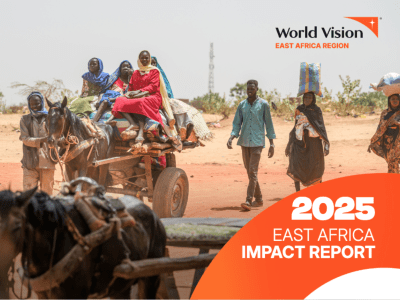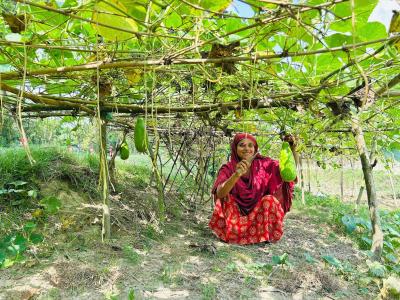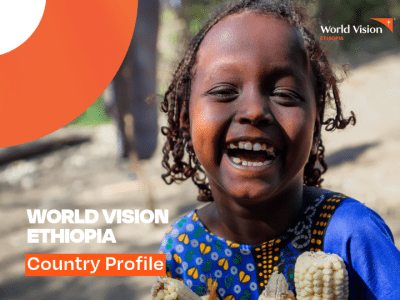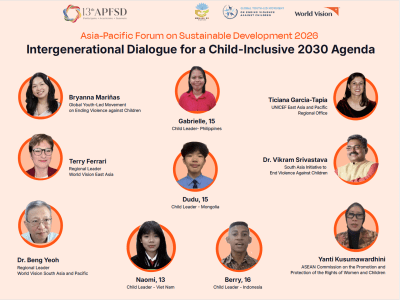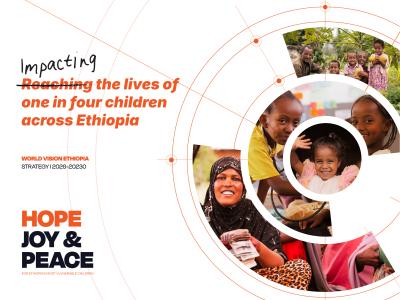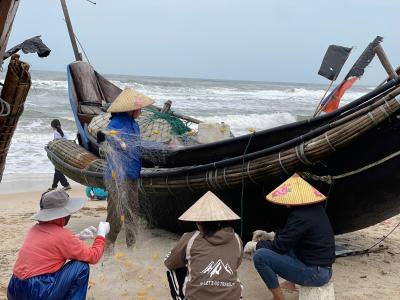article / February 20, 2026
Soil Restoration Strengthens Food Security in Northern Mozambique
Discover how World Vision and Farmer Managed Natural Regeneration (FMNR) are transforming lifeless soil into thriving pineapple harvests in Memba, Mozambique. Learn how sustainable farming techniques are strengthening food security and climate resilience for families facing extreme weather
publication / February 23, 2026
World Vision East Africa Impact Report 2025
Despite escalating conflict, climate shocks, economic instability and widespread displacement, we reached over 26 million people, including 16.4 million children
article / February 3, 2026
Agricultural Extension Services: The Backbone of Bangladesh’s Future Food Security
How Bangladesh’s agricultural extension services, backed by strong investment and NGO partnerships, are strengthening food security and farmer resilience.
publication / January 22, 2026
World Vision Ethiopia Country Profile
World Vision has worked in Ethiopia since 1971, supporting children through emergency response, education, health, water, and long-term community programmes.
article / February 26, 2026
Fatim’s Journey of Survival and Renewal with Food Assistance
Fatim, a mother of six, fled armed violence in Torou and now rebuilds her life in Koro. She supports her family by pounding millet, doing laundry, and selling gravel, while her husband receives medical care and her eldest son works in artisanal gold mining.
press release / February 25, 2026
“Our Rights, Our Future”: Strengthening Safe Civic Spaces for Child Participation at the Asia Pacific Forum on Sustainable Development 2026
At APFSD 2026, children and regional leaders unite to close the 88% SDG progress gap. Explore how child-centred innovation and direct negotiation are shaping a resilient future for communities across the Asia-Pacific.
publication / January 21, 2026
World Vision Ethiopia Strategy |2026 - 2030
World Vision Ethiopia’s 2026–2030 strategy outlines how we will impact one in four children by improving nutrition, protection, learning, and positive family and community relationships through integrated, child-centred action.
article / February 16, 2026
Blue Corridor: Protecting Viet Nam’s Oceans, Securing Coastal Futures
Viet Nam is home to one of the world’s most biologically rich coastal environments, an intricate web of marine ecosystems that sustains more than 11,000 identified species and supports the food security, livelihoods and safety of millions of people.
